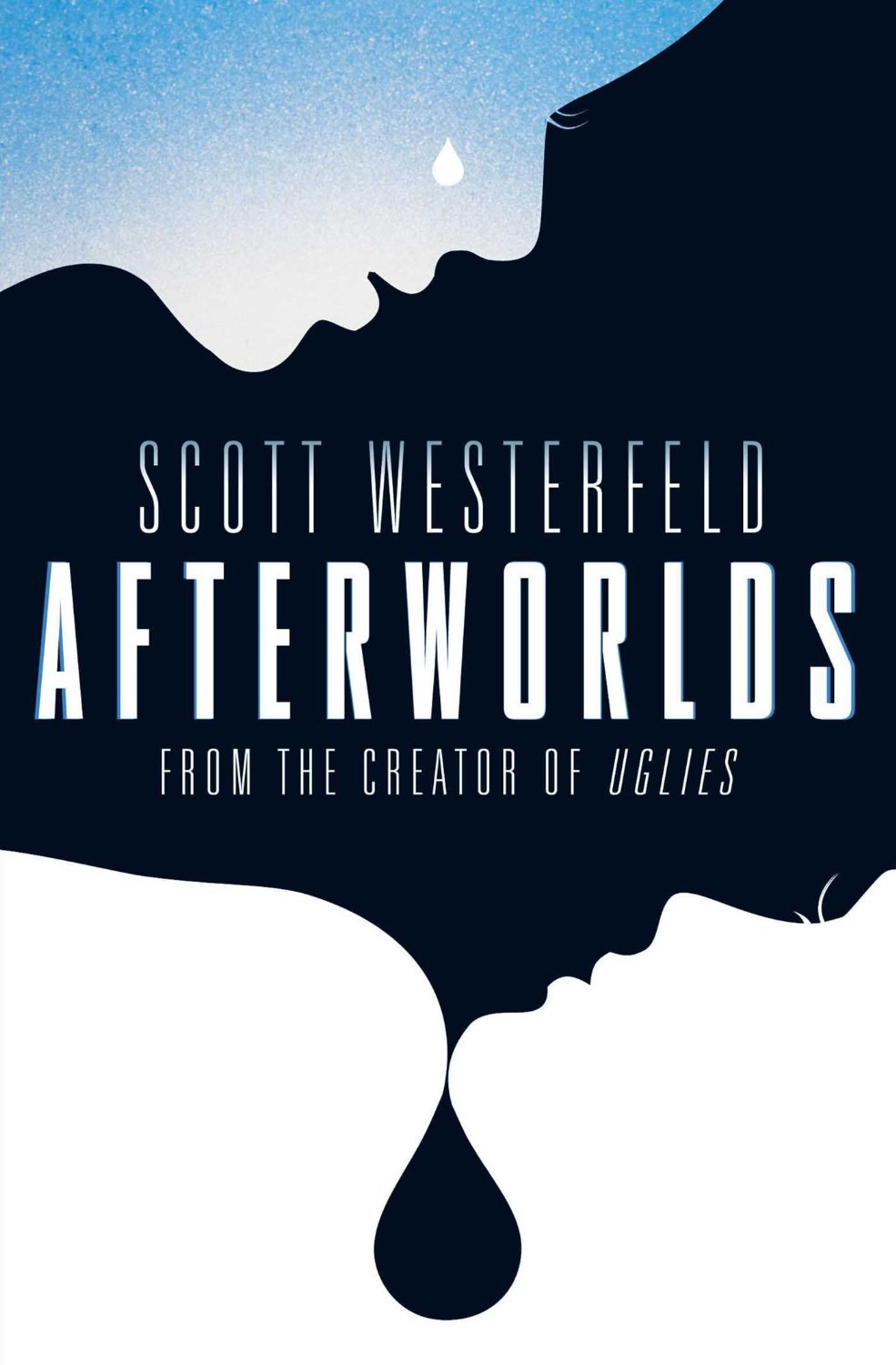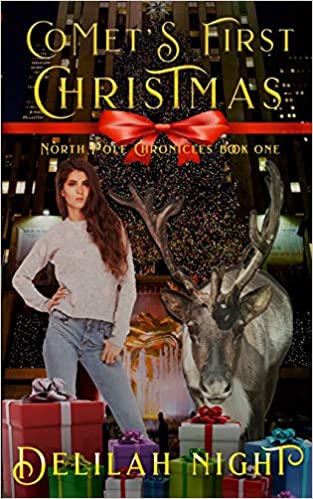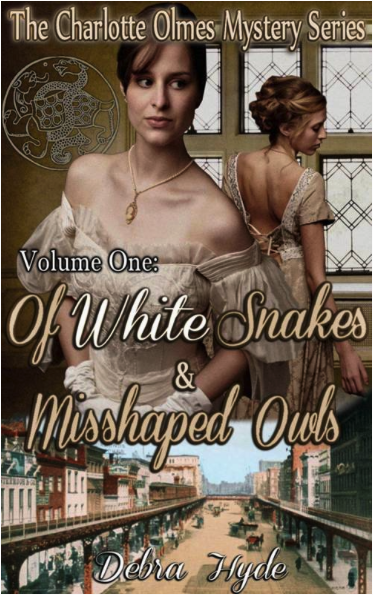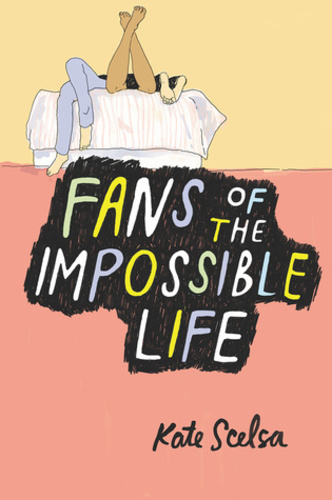It clocks in at literally just under 600 pages. It’s two books in one. It’s a heck of a new young adult experiment for Scott Westerfeld, whose previous YA series have done well. And they’ve all been very different–steampunk (Leviathan), dystopian (Uglies), and apocalyptic (Peeps), to name a few. (Also, he is married to Justine Larbalestier, which is neither here nor there, but her Magic or Madness trilogy is excellent.) “Afterworlds” is a doorstop of a book that takes on first love, the publishing world, the co-opting of cultures for the creation of art, the nature of ghosts, dreams, obligations, New York City, and a host of other things. It is, in a word rather than in a list, ambitious. And it mostly works. Which is great, because it’s a Commitment; I only picked it up because I was processing it for my library and noticed that one of the subject headings was Lesbians–Fiction.
Darcy’s barely a high school graduate, but back in the fall she gritted her teeth and committed herself to NaNoWriMo (seenanowrimo.org). She triumphed. The novel she completed is called “Afterworlds,” and not only has she sold it, she’s managed to get a two-book contract for an obscene amount of money. And she’s moved to New York to be a writer, to do the revisions of “Afterworlds,” and to come up with the elusive second novel she’s now contractually obligated to deliver.
Darcy’s protagonist is Lizzie, and no, Darcy doesn’t pick up on the Darcy-and-Lizzie thing until well after she’s completed the novel, and once it’s pointed out, it doesn’t really go anywhere; it’s just acknowledged for the Janeites. Darcy’s tale and Lizzie’s tale (that is, Darcy’s novel) are told in alternating chapters, so quite seriously, this is two full books. There’s the story of a young girl moving to New York City to test out the possibilities of what might be a charmed life, and the story of a young girl dealing with the challenges of her own new life in the aftermath of a horrible tragedy.
One of the great things about Darcy is that she has a little sister who’s smart and plucky. Another great thing about Darcy is that she’s clueless and doesn’t know it. She’s from a Hindu family, but has written a book about a white girl who survives a terrorist attack by slipping into the spirit world, becoming a spirit guide, and falling in love with a Hindu death god. There’s some good stuff going on in the book, but the leads are a bit vanilla. Darcy wanted her protagonist to be relatable, though, and she based the death god on a Bollywood actor she thought was hot. That’s her model for love. Until she moves to New York. Until she meets Imogen.
And then New York gives her an experience she hadn’t anticipated. Darcy and Imogen are both writers, both Word Girls who appreciate language and its nuances. Their relationship isn’t entirely transparent, though. Darcy has maybe skipped class once or twice. But Imogen has a past. Emotionally, Imogen is more complex than the people Darcy’s used to. From the beginning there’s a sense of something being off-kilter, and that sense only grows until things come to a head–I was disappointed with Westerfeld’s resolution here. There’s lots of attention given to how Darcy deals with the ending of Lizzie’s story, but that ending was fine. It’s the ending of Darcy’s story that disappoints. It feels as if Westerfeld lacked the conviction to carry through the momentum he built throughout an entire novel, because the original ending perhaps didn’t test well. Maybe it’s a meta-statement on publishing?
The genre story is riproaring and page-turning. The frame story offers a little wish-fulfillment peek into YA heaven, and a mostly lovely and restrained look at the amazingness of awakening feelings, and first love, and finally understanding what everyone else has been obsessing about for years. There’s no graphic sexual content, but lots of F-bombs, which is necessary to know if you’re a YA librarian. Nobody cares about murder (there’s some of that) or terrorism (yup), but is there sex (not described)? Bad language (all over the place)?
Where this book will find its readership is up for debate. Usually, the teenage girls (or “new adults”) to whom it seems to be marketed are lots more self-aware than Darcy. Her naivete may turn them off. Adults may find this to be wish fulfillment all around. Not only does Darcy fall into her publishing contract and a lovely apartment and her first relationship, she’s in an extremely accepting community. There’s only one uncomfortable moment, when she admits that she doesn’t want to go home and tell her parents she’s dating Imogen. Imogen has to point out that not everyone has it so easy, and “Not all of us make it, you know.” This is no one’s publishing story; maybe it’s no one’s coming-out story, either.
What’s the verdict? I loved the parts about the publishing world and the beginning (and pieces of the middle) of Lizzie’s story. But there’s a lot going on here. This wouldn’t be something to recommend to someone just looking for a good lesbian romance.




